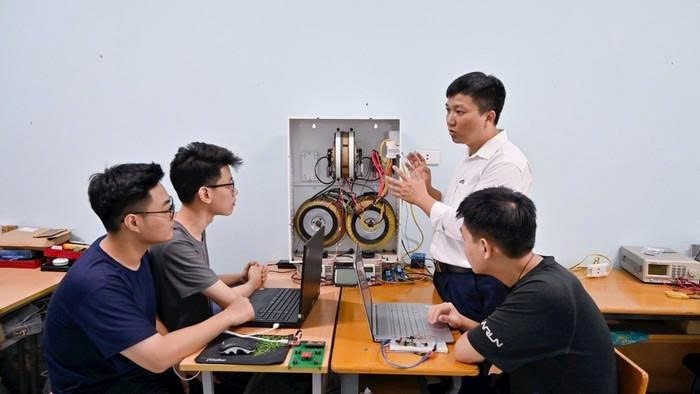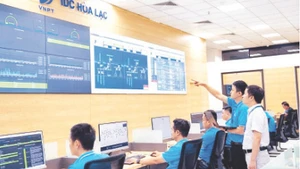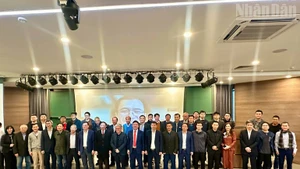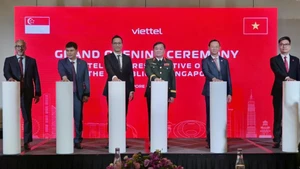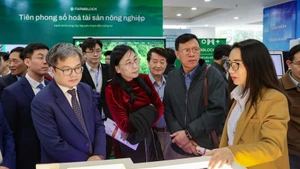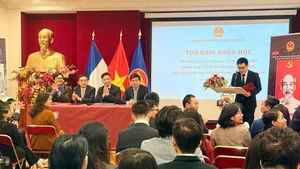The draft provides a candid assessment, stating that mechanisms and policies for science, technology, and innovation still face many shortcomings and obstacles. Certain mechanisms, policies, investment resources, financial management in science and technology, and incentives for intellectuals remain inadequate.
The draft documents stress the need for urgent and decisive renewal and improvement of mechanisms and policies for science and technology development in accordance with market principles and international standards and practices; the creation of breakthrough mechanisms and policies suited to the characteristics of creative labour; and the complete removal of bottlenecks and barriers in science, technology, and innovation activities.
Many comments and assessments note that this content reflects the Party’s determination to renew its thinking and actions, creating fresh momentum for science and technology development while contributing to the country’s strong progress in a new era — a determination clearly demonstrated in the Politburo’s Resolution No. 57-NQ/TW (dated December 22, 2024). According to this resolution, institutions are defined as a prerequisite that must be completed ahead of other tasks, becoming a competitive advantage in science, technology, innovation, and digital transformation.
With expectations placed on the institutional reforms and the identification of science, technology, innovation, and digital transformation as the core drivers mentioned in the draft documents, many experts and scientists have voiced strong support and directly related these viewpoints to the realities of their work.
According to Dr Chu Duc Hoang, Chief of Office of the National Technology Innovation Fund (NATIF) under the Ministry of Science and Technology, fully institutionalising and effectively implementing the Party’s viewpoints on science, technology, and innovation — particularly through amendments, supplementation and comprehensive improvements to legal regulations in this field — will remove bottlenecks, unlock resources, and create breakthroughs in socio-economic development.
In the previous term, NATIF took the lead and cooperated with agencies to prepare, draft, and submit more than 80 legal and administrative documents; received nearly 50 loan proposals and appraised almost 10 dossiers; and provided loans for two projects. NATIF also conducted comprehensive impact assessments following its pilot phase, serving as a basis for drafting a complete system of documents under the 2025 Law on Science, Technology and Innovation.
Currently, NATIF is focusing on reviewing and finalising drafts related to financial fund activities to ensure consistency across the legal framework, closely following the requirements of resolutions adopted by the Politburo, the National Assembly, and the Government of Viet Nam, as well as directives from the Party Committee of the Ministry of Science and Technology. This work is being carried out in an urgent manner, as the Ministry of Science and Technology aims for the fund to allocate at least 40% of its budget to AI support. Loan sources will be linked to specific and measurable indicators to demonstrate the practical effectiveness of these policies.
Fully institutionalising and effectively implementing the Party’s viewpoints on science, technology, and innovation — particularly through amendments, supplementation, and comprehensive improvements to legal regulations in this field — will remove bottlenecks, unlock resources, and create breakthroughs in socio-economic development.
Dr Chu Duc Hoang, Chief of Office, National Technology Innovation Fund, Ministry of Science and Technology
Based on his experience teaching at the Posts and Telecommunications Institute of Technology, Dr Nguyen Trung Hieu, Secretary of the Party Committee and Head of the Faculty of Electronics Engineering 1, believes that management mechanisms and investment and financial policies for education, training, science, technology, and innovation at many universities and research institutes are still inconsistent and lack specific guidance.
Therefore, in recent times, the Party Committee and leaders of the Faculty of Electronics Engineering 1 have focused on studying the contents of Resolution No. 57-NQ/TW and advising higher-level Party committees on applying, building, and refining mechanisms and policies on science and technology that match the institute’s status as a leading university in this field. Party members and lecturers in the faculty have actively worked to establish clear indicators for each type of scientific and technological output, serving as a basis for proposing suitable incentive policies to the institute’s Party Committee.
According to Dr Nguyen Trung Hieu, political and legal documents on science, technology, and innovation — such as Resolution No. 57-NQ/TW and the 2025 Law on Science, Technology and Innovation — contain many new provisions that emphasise autonomy, creative application, and accountability in organisation, personnel, finance, and professional activities. These requirements also call for enhanced effectiveness in State management of science, technology, innovation, and digital transformation.
